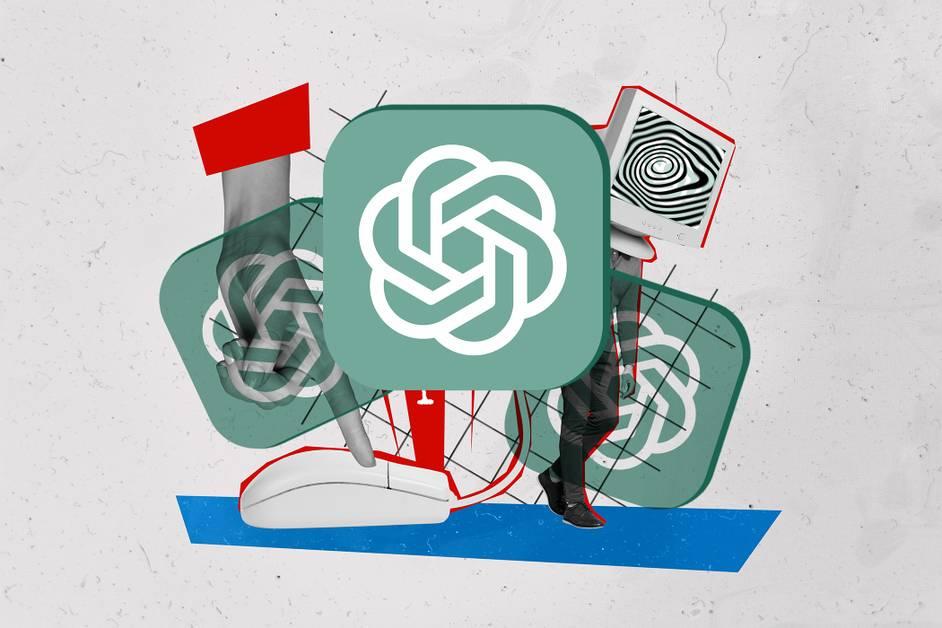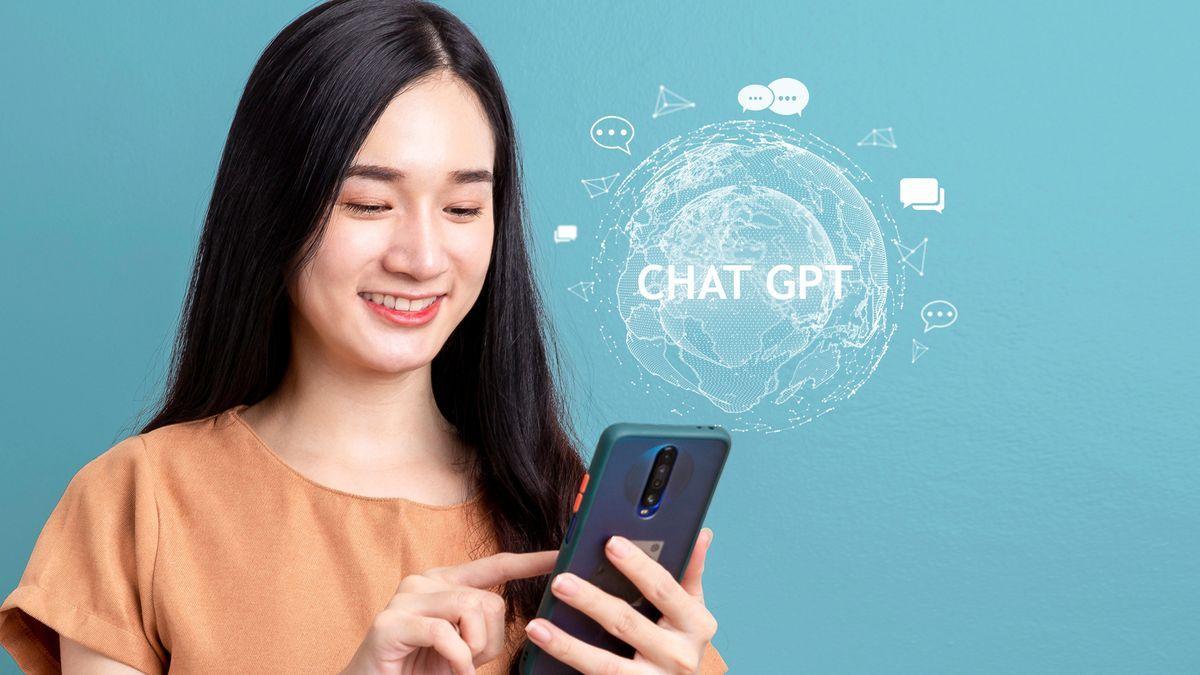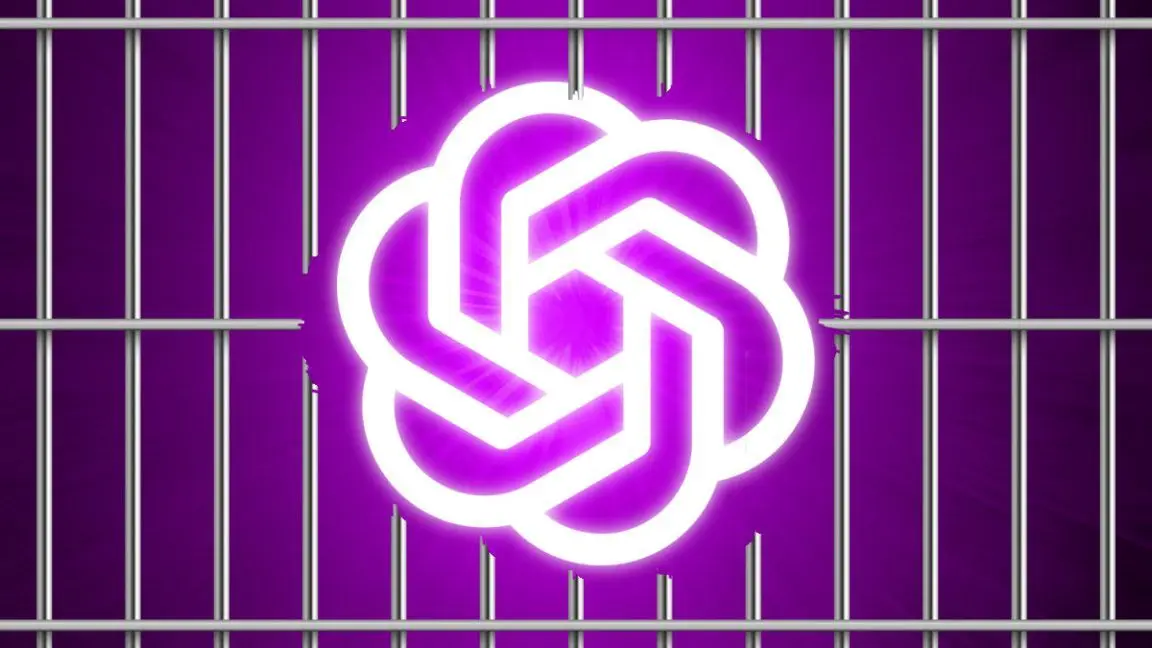ChatGPT's 10-Hour Outage Reveals AI's Deep Impact on Society and Creativity
3 Sources
3 Sources
[1]
ChatGPT's 10-hour outage has given me a new perspective on AI - it's genuinely helping millions of people get through life
OpenAI servers experienced mass downtime yesterday, causing chaos among its most loyal users for well over 10 hours. For six hours straight, I sat at my desk live-blogging the fiasco here on TechRadar, trying to give as many updates as possible to an outage that felt, for many, as if they had lost a piece of themselves. You see, I write about consumer AI, highlighting all the best ways to use AI tools like ChatGPT, Gemini, and Apple Intelligence, yet outside of work, these incredibly impressive platforms have yet to truly make an impact on my life. As someone who's constantly surrounded by AI news, whether that's the launch of new Large Language Models or the latest all-encompassing artificial intelligence hardware, the last thing I want to do outside of work is use AI. The thing is, the more AI develops at this rapid pace, the more impossible it becomes to turn a blind eye to the abilities that it unlocks. In the creative world, you'll stumble across more AI skeptics than people who shout from the rooftops about how great it is. And that's understandable, there's a fear of how AI will impact the jobs of journalists like me, and there's also a disdain for the sanitized world it's creating via AI-slop or robotically-written copy. But the same skepticism often overlooks the positives of this ever-evolving technology that gives humans new ways to work, collect their thoughts, and create. After six hours of live blogging and thousands of readers reaching out with their worries surrounding the ChatGPT server chaos, as well as discussing what they use the chatbot for, I've come away with a completely new perspective on AI. Yes, there are scary elements; the unknown is always scary, but there are people who are truly benefiting from AI, and some in ways that had never even crossed my mind. An hour into live blogging the ChatGPT outage, and I was getting bored of repeating, "It's still down" in multiple different ways. That was when I had an idea: if so many people were reading the article, they must care enough to share their own reasons for doing so. Within minutes of asking readers for their opinions on the ChatGPT outage, my inbox was inundated with people from around the globe telling me how hard it was to cope without access to their trusty OpenAI-powered chatbot. From Canada to New Zealand, Malaysia to the Netherlands, ChatGPT users shared their worries and explained why AI means so much to them. Some relied on ChatGPT to study, finding it almost impossible to get homework done without access to the chatbot. Others used ChatGPT to help them with online dating, discussing conversations from apps like Tinder or Hinge to ensure the perfect match. And a lot of people reached out to say that they spent hours a day speaking with ChatGPT, filling a void, getting help with rationalizing thoughts, and even helping them to sleep at night. One reader wrote me a long email, which they prefaced by saying, "I haven't written an email without AI in months, so I'm sorry if what I'm trying to say is a bit all over the place." Those of us who don't interact with AI on a regular basis have a basic understanding of what it can do, often simplifying its ability down to answering questions (often wrongly), searching the web, creating images, or writing like a robot. But that's such an unfair assessment of AI and the way that people use it in the real world. From using ChatGPT to help with coding, allowing people who have never been able to build a program an opportunity to do so, to giving those who can't afford a professional outlet for their thoughts a place to speak, ChatGPT is more capable than many want to accept. ChatGPT and other AI tools are giving people all around the world access to something that, when used correctly, can completely change their lives, whether that's by unlocking their productivity or by bringing them comfort. There's a deeply rooted fear of AI in the world, and rightfully so. After all, we hear on a regular basis how artificial intelligence will replace us in our jobs, take away human creativity, and mark the beginning of the robot uprising. But would we collectively accept it more if those fears were answered? If the billionaires at the top were to focus on highlighting how AI will improve the lives of the billions of people struggling to cope in this hectic world? AI should be viewed as the key to unlocking human creativity, freeing up our time, and letting us do less of the mundane and more of enjoying our short time on this planet. Instead, the AI renaissance feels like a way to make us work harder, not smarter, and with that comes an intense amount of skepticism. After seeing just how much ChatGPT has impacted the lives of so many, I can't help but feel like AI not only deserves less criticism, but it deserves more of an understanding. It's not all black and white, AI has its flaws, of course it does, but it's also providing real practical help to millions of people like nothing I've seen before.
[2]
ChatGPT Is Down -- Your Business (and Life) May Be Next
It's June 10, 2025, and if you tried to get ChatGPT to help with your homework, write some code, or even just plan your workout, you probably ran into a wall of silence. This isn't the first time it's happened, and it won't be the last. But each time it happens, it has a bigger impact on our lives. So What If ChatGPT Is Down Again? My first clue was when I asked for a workout routine and got back a string of nonsense, followed by nothing at all. I checked my VPN and restarted my browser, but a quick look at OpenAI's official status page told the real story: a sea of red alerts. The official line is they're "investigating elevated error rates," but what it really means is that a foundational piece of the modern internet has been temporarily switched off. What makes this outage so massive is that it isn't just the ChatGPT website that went down. It's a total API failure. If you're not a developer, that might sound like technical jargon, but it's a crucial difference. Most of the AI apps and features you use every day don't have their own "brain." They're built on top of tech from bigger companies, and OpenAI is one of the biggest brains on the block. Every service that relies on OpenAI, from AI-powered image generators and writing assistants to chatbots and data analysis tools, is effectively broken. The Personal and Professional Standstill On a personal level, the fallout is mostly an inconvenience. I had a Dungeons & Dragons game planned where we use ChatGPT as the Dungeon Master. I guess that's canceled. It's a silly, lightweight example, but it shows just how deeply this tech has woven itself into even our hobbies. But, the stakes are much higher than a canceled game night. If you're a student who uses AI to brainstorm essays, a programmer who uses it to debug code, a marketer who uses it to write ad copy, or a blogger who uses it to generate article ideas, your workflow just came to a screeching halt. On a grander scale, the implications are far more severe. We have witnessed an aggressive, almost frantic, push for AI implementation across nearly every sector. What happens to the marketing firm whose content pipeline is entirely automated by AI? What about the legal tech company that uses AI to summarize case law? In a government context, what happens to the public-facing services or internal administrative workflows that have been "optimized" with this technology? We Put All Our Eggs in One AI Basket Server providers love to talk about "99% uptime." It's the tech equivalent of the toothpaste ad that kills 99% of germs and is recommended by 9 out of 10 dentists. It sounds impressive, but it's an open admission that things will, inevitably, break. And that's usually fine. If a small social media app goes down for a few hours, it's annoying. But when a service as central as OpenAI goes down, it feels more like a power outage for a whole city. A single ChatGPT API key, as the saying now goes, can now perform the work of a hundred employees on mundane tasks. This is a powerful proposition for any organization looking to streamline operations and cut costs. But in reality, it creates a very fragile system. A single point of failure, be it a technical glitch, a security breach, or even a simple internet connectivity issue at a critical data center, can bring entire organizations, even entire industries, to their knees. Related 5 Reasons Why AI Search Tools Will Never Fully Replace Classic Google Searches AI search tools are great, but Google is still king of the hill -- for now. Posts Your AI Knows You, and That's the Problem A couple of years ago, if ChatGPT was down, you could just hop over to a competitor like Gemini or Claude. It wasn't a big deal. But that's getting harder to do. Why? Personalization. My version of ChatGPT isn't the same as yours. It knows my writing style, remembers our past conversations, and is loaded with custom instructions I've fed it over time. With its latest memory updates, ChatGPT remembers almost everything about you. To be truly useful, an AI needs to be trained on you. This process is what locks you in. Switching to another AI means starting over from zero and losing all that valuable context that makes the tool feel like a true assistant. We've built ourselves into these walled gardens, and now we're stuck waiting for the gardener to fix the plumbing. Related How Well Does ChatGPT Know You? These 5 Prompts Find Out It's not just small talk -- your data sticks. Posts 1 The Unmasking Effect There is a fascinating silver lining to an event like this that almost makes me wish it would last longer: An AI outage acts as an involuntary truth serum. The artist who has built a reputation on their "unique" style while secretly relying on generative AI will suddenly fall silent. The content farm masquerading as a legitimate news outlet will see its publication schedule evaporate. Deadlines will be missed, extensions will be requested, and the true source of their "creativity" will be revealed by its absence. Related 11 Dead Giveaways the Image You're Seeing Was AI-Generated Blink twice -- did that shadow just defy physics? Posts 2 It forces us to ask some uncomfortable questions. What happens if a hospital is using an AI tool to help doctors read patient scans and that tool suddenly goes offline? What good are doctors who have learned to rely on AI for their diagnoses? Are We Forgetting How to Do Things Ourselves? This brings us to the biggest, most critical issue an outage like this exposes: the slow erosion of human skill. Imagine you're a manager. You decide to let go of your expensive senior writer and hire a recent graduate who can't really write, but is a master at prompting ChatGPT to get great results for a fraction of the cost. It seems like a clever business move. But when ChatGPT goes dark, what are you left with? Your junior employee is helpless, and the expert knowledge you once had in-house is gone. The ability to write a press release, solve a problem, or think critically without an AI holding your hand is a skill. And like any skill, if you don't use it, you lose it. The real cost of the AI revolution might not be the jobs we lose, but the abilities we willingly give away.
[3]
ChatGPT's outage showed me how much the world's changed for creatives
Imagine, if you will, a time traveller from 2019 stumbling into the morning of 10 June, 2025. They'd witness something that is, to them, quite extraordinary. Millions of people simultaneously experiencing withdrawal symptoms not from their phones, social media, or even Netflix... but from a chatbot. Yesterday's ChatGPT outage wasn't just a technical hiccup: it was a collective existential crisis that laid bare how fundamentally the creative world, not to mention the world in general, has transformed over a few short years. Our hypothetical visitor would be baffled by the sight of novelists staring blankly at their screens, unable to brainstorm plot points with their AI writing partner. They'd watch designers frantically refreshing their browsers, desperate to auto-generate that perfect thumbnail concept. They'd witness students panic-texting their mates because their digital revision buddy had gone silent mid-session. "What on earth," they might ask, "is a ChatGPT? And why does everyone seem to be having a nervous breakdown without it?" The answer would probably horrify them. In less than three years, we've collectively become dependent on AI for our creative processes, in ways that'd have seemed like science fiction just a decade ago. Many of us have handed over not just our mundane tasks - fair enough - but our inspiration, our problem-solving, even our emotional support to algorithms. So yesterday's outage didn't just disrupt our workflows. It revealed the extent to which we've begun to outsource our creative thinking. The irony is delicious. We've spent centuries celebrating human creativity as the one thing that makes us special, the irreplaceable spark that separates us from machines. Yet here we are, three years into the AI revolution, voluntarily tethering our creative processes to the very machines we once feared would replace us. What's particularly striking is how quickly this transformation happened. The creative industries didn't gradually adapt to AI over decades; they were revolutionised in what feels like a blink (AI skills are even desirable at job interviews). The shift has been so seismic that entire professions have been redefined. Graphic designers now speak fluent prompt engineering, especially during prototyping and moodboarding. Copywriters have become AI whisperers, crafting perfect instructions for their digital collaborators. Even traditionally low-tech creatives like painters and sculptors are experimenting with AI-generated concepts and colour palettes. Yet yesterday's outage also revealed something hopeful: we're not entirely helpless without our digital crutches. Faced with silence from their AI assistants, creatives didn't just give up - they adapted. They dug out physical books and did some old-style Googling for research. They called friends for brainstorming sessions. They even (gasp) trusted their own instincts. It's like when your home internet goes down and you remember there's something in the loft called a DVD player, and you can just about remember how to work it. The old skills are still there, just rusty from disuse. The real question isn't whether our increasing reliance on AI is good or bad; that ship has sailed. The question is whether we're conscious enough of this transformation to maintain some degree of creative autonomy. In other words, are we using AI to enhance our creativity... or have we become so dependent that we've lost the ability to create without it? The world has changed dramatically for creatives, and there's no going back. But yesterday's collective panic attack over a chatbot going offline suggests we might want to occasionally practise creating in silence. Just to remember what our own voices sound like, when they're not competing with artificial ones.
Share
Share
Copy Link
A recent 10-hour ChatGPT outage exposes the extent of AI integration in daily life and creative processes, sparking discussions about dependency, benefits, and the changing landscape of human creativity.
ChatGPT's Unexpected Downtime Sparks Global Reaction
On June 10, 2025, ChatGPT, OpenAI's popular AI chatbot, experienced a significant outage lasting over 10 hours. This unexpected downtime caused widespread disruption and revealed the extent to which AI has become integrated into daily life and work processes
1
.
Source: MakeUseOf
The Ripple Effect of AI Dependency
The outage's impact was felt across various sectors, from education and creative industries to business and personal use. Students found it challenging to complete homework, professionals struggled with tasks like coding and content creation, and some individuals even reported difficulty in managing their daily routines without AI assistance
1
.AI's Role in Personal and Professional Lives
Many users shared their experiences during the outage, revealing surprising ways in which AI has become integral to their lives. Some relied on ChatGPT for emotional support, others for help with online dating, and many for various professional tasks. This dependency highlighted both the benefits and potential risks of such heavy reliance on AI technology
2
.
Source: TechRadar
The Creative Industry's AI Revolution
The outage particularly affected the creative sector, exposing how deeply AI has been integrated into creative processes. Designers, writers, and even traditional artists now regularly use AI for inspiration, problem-solving, and task automation. This shift has redefined entire professions, with skills like prompt engineering becoming increasingly valuable
3
.Concerns Over Skill Erosion and AI Dependency
The incident raised concerns about the potential erosion of human skills due to over-reliance on AI. Some experts worry that professionals might be losing their ability to perform tasks independently, leading to a fragile system with a single point of failure
2
.Related Stories
Adapting to AI Absence
Despite initial panic, many users found ways to adapt during the outage. This adaptation process revealed that while AI has become a crucial tool, human creativity and problem-solving skills remain relevant. Some even viewed the outage as an opportunity to reconnect with traditional methods of work and creativity
3
.The Future of AI Integration
As AI continues to evolve and integrate into various aspects of life, questions arise about the balance between leveraging AI capabilities and maintaining human autonomy. The incident has sparked discussions on how to use AI as an enhancing tool rather than a replacement for human skills and creativity
1
3
.Rethinking AI Dependency
The ChatGPT outage serves as a wake-up call for individuals and organizations to reassess their reliance on AI. It highlights the need for contingency plans and the importance of maintaining a balance between AI assistance and human capabilities. As AI continues to shape the future, finding this balance will be crucial for sustainable progress and innovation
2
3
.References
Summarized by
Navi
Related Stories
OpenAI Reverses Course on GPT-5 Launch, Brings Back GPT-4o Amid User Backlash
09 Aug 2025•Technology

The Dark Side of AI Chatbots: Concerns Over Mental Health Risks and Deceptive Behaviors
13 Jun 2025•Technology

AI's Impact on Brain Activity and Writing: New Research Raises Concerns
26 Jun 2025•Technology

Recent Highlights
1
ByteDance's Seedance 2.0 AI video generator triggers copyright infringement battle with Hollywood
Policy and Regulation

2
Demis Hassabis predicts AGI in 5-8 years, sees new golden era transforming medicine and science
Technology

3
Nvidia and Meta forge massive chip deal as computing power demands reshape AI infrastructure
Technology





